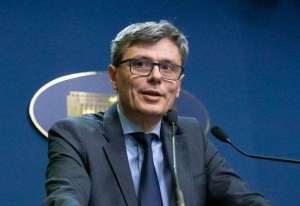Jean Constantinescu, the chairman of the Romanian Institute for Energy (IRE) considers that the main interest of Gazprom in cooperating with Romanian companies is the setup of large gas storage areas at the locations of depleted gas deposits. He said: "It is obvious that Gazprom is interested mostly in our capabilities to setup gas stores. We have the greatest potential in the region, at a relatively low cost. As Ukraine creates difficulties for Gazprom"s exports of gas to the rest of Europe, the company has been looking for alternative solutions for transporting and supplying alternative solutions. Hence the natural interest in Romania, which has over 100 years of tradition in the exploration and exploitation of natural gas. We have the largest number of depleted deposits, which could be turned into storage areas. According to official announcements, Gazprom is reviewing ten locations with a capacity of up to 6 billion cubic meters, which is the equivalent to around one third of our domestic consumption. With the necessary investments, Romania could become the depository of Russian gas on its way to Europe".
The chairman of the IRE says that eliminating the intermediaries in the gas trade is not the real issue. Jean Constantinescu says that what the state should do in its relationship with Gazprom is to convince the Russian giant to change the current state of things, where only a small number of import-export companies are allowed to buy natural gas from Gazprom. Gazprom is not particularly interested in having Romania get involved in South Stream, but rather created this project to rival Nabucco, says the chairman of the IRE.
Professor Aureliu Leca, a reputed energy market analyst, said that what Gazprom is really interested in is Romania"s huge storage potential: "I don"t know how quickly this cooperation with Romgaz will materialize, but it is clear that Gazprom"s plan is to find alternatives to routing Russian gas through Ukraine.
The last dispute with Ukraine left Europe without natural gas in the middle of the winter, and caused Gazprom to lose hundreds of millions of dollars".
Mr. Leca said that Romania has a net advantage ahead of Bulgaria due to is ability to quickly set up large stores of natural gas, as well as due to its adequate gas transport and distribution system and connections to other European countries.
Aureliu Leca estimates that South Stream, which Romania was invited to participate in, is just a project intended to counter the interest in the Nabucco pipeline, which is intended to bring natural gas from the Caspian Sea region into Europe, by eliminating Russia as a middleman.
He says that both projects are still at an incipient stage, even though talks around them have been going on for years, and at the moment, is it unknown how much either project would cost and when work would begin on either of them.


























































